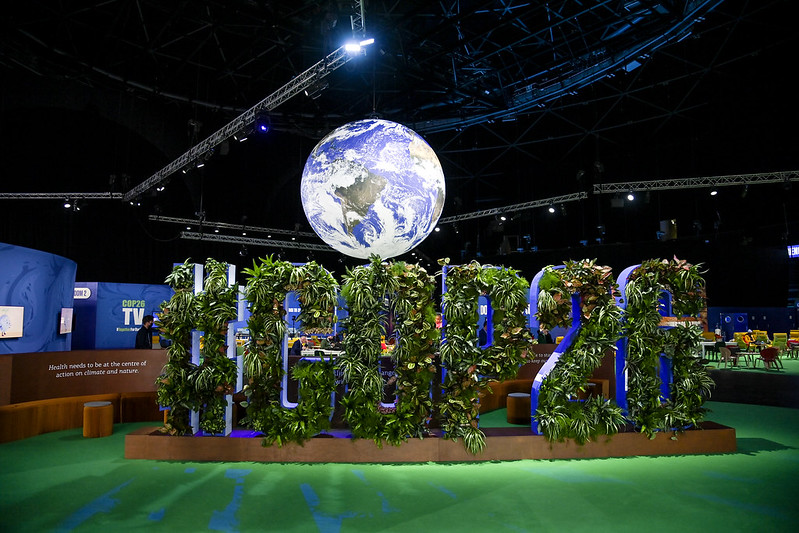‘Inspiring and illuminating’: Pupils forge climate consensus at Mock COP26

The 16 to 18-year-olds took the roles of interest groups – from lesser-known countries and Greenpeace to the UK and the UN – and thrashed out deals in the University of Bristol’s Wills Memorial Building.
Over a fraught day of negotiations the groups brokered deals, persuaded peers and discovered common ground in an event that mimicked the conference in Glasgow.
Pupils from ten local schools came to Mock COP26, which was organised by the University’s Cabot Institute for the Environment, Bristol City Council and Praxis Research, an environmental research group.
Jacob Jones from St Mary Redcliffe and Temple School, said: “Mock COP surprised me with how many countries attended. I always thought COP would just be the main major powers. It’s been interesting to see how many countries and non-governmental organisations are at the table.
“I’m hoping to see some real change at COP26, something better than what we’ve had before. There’s time, but not too much time.”
Mock COP was dreamt up before COP21 in Paris by then-University of Bristol PhD students Jack Nicholls, Ed Atkins and Alice Venn.
Dr Nicholls said: “We wanted to see whether A level students could cut through the noise and intransience of international climate negotiations and find compromises that had evaded professional negotiators at the preceding COPs.
“Working alongside my co-workers at Praxis Research, we refined the negotiation exercise and shared the resource with universities from the COP UK Universities Network.
“We have been delighted to see universities and councils use these resources and run their own Mock COPs – engaging young people to face the hard realities of climate change.”
Each interest group was joined by a Masters student from the Cabot Institute, who helped the groups learn and negotiate.
Sophie Ross-Smith, Cabot Institute Manager, said: “It’s been inspiring and illuminating to hear the outcomes of the students negotiations, which would help keep us on track to meet the Paris Agreement of keeping global temperatures below 1.5C.
“The youth voice is so important which is why we want to engage with young people as much as possible.”
After the negotiations the groups voted on what would become global policy. They also came up with their own ideas for how to solve the climate crisis, from support for eco-anxiety and listening to more indigenous groups to investment in vertical farming and an end to meat industry subsidies.
The day was finished off with a speech from Bristol Deputy Mayor Councillor Asher Craig.
She said: “To the young people of the city and around the world, I want to say thank you. I want to thank you for your tenacity and leadership on the climate emergency. Your imagination, ideals and energy are vital to the continuing development of societies.
“It’s today’s young people who are the first generation to feel the impact of climate change and it’s going to be you, who will be the generation to mitigate the worst effects of it.
“Here in Bristol, young people make up over 25% of the city, but you are 100% of our future. We need young people leading but, unlike COP26, that leadership must be diverse and inclusive.”











Responses